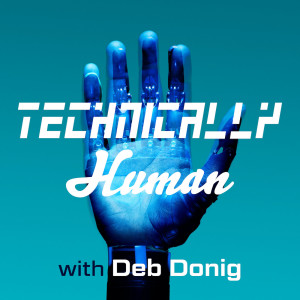
- Podcast Features
-
Monetization
-
Ads Marketplace
Join Ads Marketplace to earn through podcast sponsorships.
-
PodAds
Manage your ads with dynamic ad insertion capability.
-
Apple Podcasts Subscriptions Integration
Monetize with Apple Podcasts Subscriptions via Podbean.
-
Live Streaming
Earn rewards and recurring income from Fan Club membership.
-
Ads Marketplace
- Podbean App
-
Help and Support
-
Help Center
Get the answers and support you need.
-
Podbean Academy
Resources and guides to launch, grow, and monetize podcast.
-
Podbean Blog
Stay updated with the latest podcasting tips and trends.
-
What’s New
Check out our newest and recently released features!
-
Podcasting Smarter
Podcast interviews, best practices, and helpful tips.
-
Help Center
-
Popular Topics
-
How to Start a Podcast
The step-by-step guide to start your own podcast.
-
How to Start a Live Podcast
Create the best live podcast and engage your audience.
-
How to Monetize a Podcast
Tips on making the decision to monetize your podcast.
-
How to Promote Your Podcast
The best ways to get more eyes and ears on your podcast.
-
Podcast Advertising 101
Everything you need to know about podcast advertising.
-
Mobile Podcast Recording Guide
The ultimate guide to recording a podcast on your phone.
-
How to Use Group Recording
Steps to set up and use group recording in the Podbean app.
-
How to Start a Podcast
-
Podcasting
- Podcast Features
-
Monetization
-
Ads Marketplace
Join Ads Marketplace to earn through podcast sponsorships.
-
PodAds
Manage your ads with dynamic ad insertion capability.
-
Apple Podcasts Subscriptions Integration
Monetize with Apple Podcasts Subscriptions via Podbean.
-
Live Streaming
Earn rewards and recurring income from Fan Club membership.
-
Ads Marketplace
- Podbean App
- Advertisers
- Enterprise
- Pricing
-
Resources
-
Help and Support
-
Help Center
Get the answers and support you need.
-
Podbean Academy
Resources and guides to launch, grow, and monetize podcast.
-
Podbean Blog
Stay updated with the latest podcasting tips and trends.
-
What’s New
Check out our newest and recently released features!
-
Podcasting Smarter
Podcast interviews, best practices, and helpful tips.
-
Help Center
-
Popular Topics
-
How to Start a Podcast
The step-by-step guide to start your own podcast.
-
How to Start a Live Podcast
Create the best live podcast and engage your audience.
-
How to Monetize a Podcast
Tips on making the decision to monetize your podcast.
-
How to Promote Your Podcast
The best ways to get more eyes and ears on your podcast.
-
Podcast Advertising 101
Everything you need to know about podcast advertising.
-
Mobile Podcast Recording Guide
The ultimate guide to recording a podcast on your phone.
-
How to Use Group Recording
Steps to set up and use group recording in the Podbean app.
-
How to Start a Podcast
-
Help and Support
- Discover
In this episode of “Technically Human,” I sit down with Dr. Eric Daimler. We talk about one of the biggest technology problems facing us today—data deluge—and how new computational models and theories can help solve it and, Dr. Daimler weighs in on the gaps, differences, and possibilities for collaboration between policy, industry, and academia. And we talk about what a vision of “AI for Good” might look like in a world of increasingly infinite data.
Dr. Eric Daimler is a leading authority in robotics and artificial intelligence with over 20 years of experience as an entrepreneur, investor, technologist, and policymaker. He served under the Obama Administration as a Presidential Innovation Fellow for AI and Robotics in the Executive Office of President, as the sole authority driving the agenda for U.S. leadership in research, commercialization, and public adoption of AI & Robotics.
Dr. Daimler has incubated, built and led several technology companies recognized as pioneers in their fields ranging from software systems to statistical arbitrage. His newest venture, Conexus, is a groundbreaking solution for what is perhaps today's biggest information technology problem — data deluge.
As founder and CEO of Conexus, Dr. Daimler is leading the development of CQL, a patent-pending platform founded upon category theory — a revolution in mathematics — to help companies manage the overwhelming and rapidly growing challenge of data integration and migration.
His academic research has been at the intersection of AI, Computational Linguistics, and Network Science (Graph Theory). His work has expanding to include economics and public policy. He served as Assistant Professor and Assistant Dean at Carnegie Mellon's School of Computer Science where he founded the university's Entrepreneurial Management program and helped to launch Carnegie Mellon's Silicon Valley Campus. He has studied at the University of Washington-Seattle, Stanford University, and Carnegie Mellon University, where he earned his Ph.D. in Computer Science.
Dr. Daimler’s extensive career spanning business, academics and policy give him a rare perspective on the next generation of AI. Dr. Daimler sees clearly how information technology can dramatically improve our world. However, it demands our engagement. Neither a utopia nor dystopia is inevitable. What matters is how we shape and react to, its development.
This episode was produced by Matt Perry.
Our head of reseaarch is Sakina Nuruddin.
Art by Desi Aleman.
More Episodes
High Tech Society: IEEE's vision for ethical technological advancement
 2024-11-01
2024-11-01
Debugging Division: The Architecture of Bridge-Building Social Media
 2024-10-25
2024-10-25
The Algorithm as Witness: Reimagining Holocaust Memory in the Digital Age
 2024-10-18
2024-10-18
Game On, Hate Off: Navigating the Virtual Frontier
 2024-10-11
2024-10-11
Art, Tech, Self: Untangling the Human Algorithm
 2024-10-04
2024-10-04
The QWERTY Keyboard and the Chinese Computer
 2024-09-27
2024-09-27
Agree to Disagree: Are we living in an age of techno-pessimism?
 2024-09-20
2024-09-20
The Ethics and Technology of Teams in the Age of AI
 2024-05-10
2024-05-10
Ethics Works: A day in the life of an ethics worker in tech
 2024-04-26
2024-04-26
Feel the Burn: A new novel explores the financial crisis in tech
 2024-04-19
2024-04-19
Dr. Strangelanguage: How I Learned to Stop Worrying and Love Generative AI in Medicine
 2024-04-12
2024-04-12
Taking the Temperature of AI: Measuring AI's Environmental Impact
 2024-02-16
2024-02-16
Brain Storm: The new technologies that are changing how we think about brain function
 2024-01-26
2024-01-26
The Singularity of Hope: The case for AI optimism
 2024-01-19
2024-01-19
The Count: The politics of data science
 2024-01-12
2024-01-12
Getting Public About Privacy: Understanding data privacy in the digital age
 2023-11-22
2023-11-22
The Case for Cryptocurrency: The future of digital assets post Sam Bankman-Fried
 2023-11-10
2023-11-10
The New Rules: challenging Big Tech’s reign over legal reform
 2023-11-03
2023-11-03
Soul Machines: Can AI have a body?
 2023-10-27
2023-10-27
Saving Israeli and Palestinian Lives: Technology For Life: Disaster relief and life-saving tech *From the Archives*
 2023-10-23
2023-10-23
Create your
podcast in
minutes
- Full-featured podcast site
- Unlimited storage and bandwidth
- Comprehensive podcast stats
- Distribute to Apple Podcasts, Spotify, and more
- Make money with your podcast
It is Free
You may also like

TheQuartering’s Podcast


MPIR Old Time Radio


Ham Radio Crash Course Podcast


Lex Fridman Podcast


All-In with Chamath, Jason, Sacks & Friedberg


- Privacy Policy
- Cookie Policy
- Terms of Use
- Consent Preferences
- Copyright © 2015-2025 Podbean.com

 iOS
iOS Android
Android